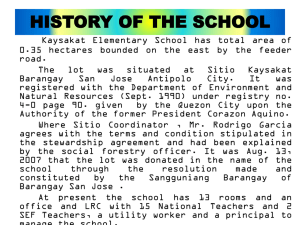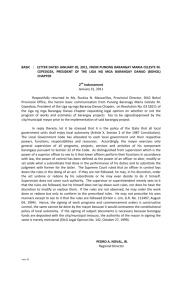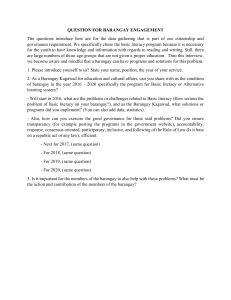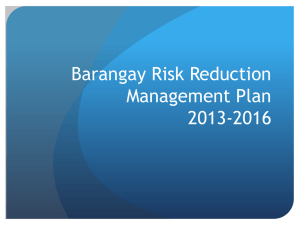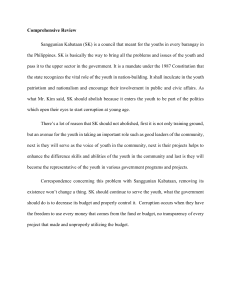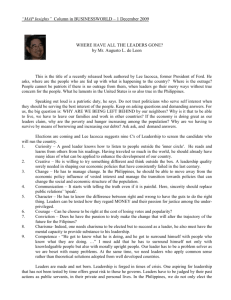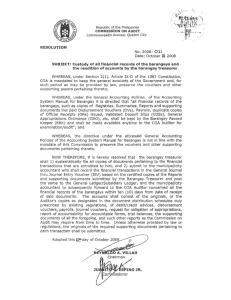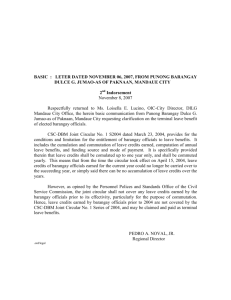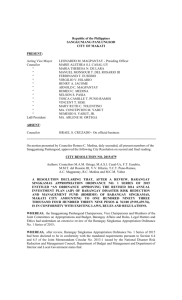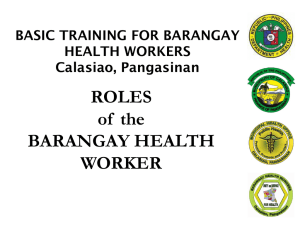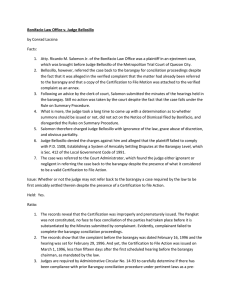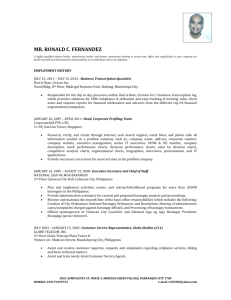PDF Version - Commission on Human Rights
advertisement
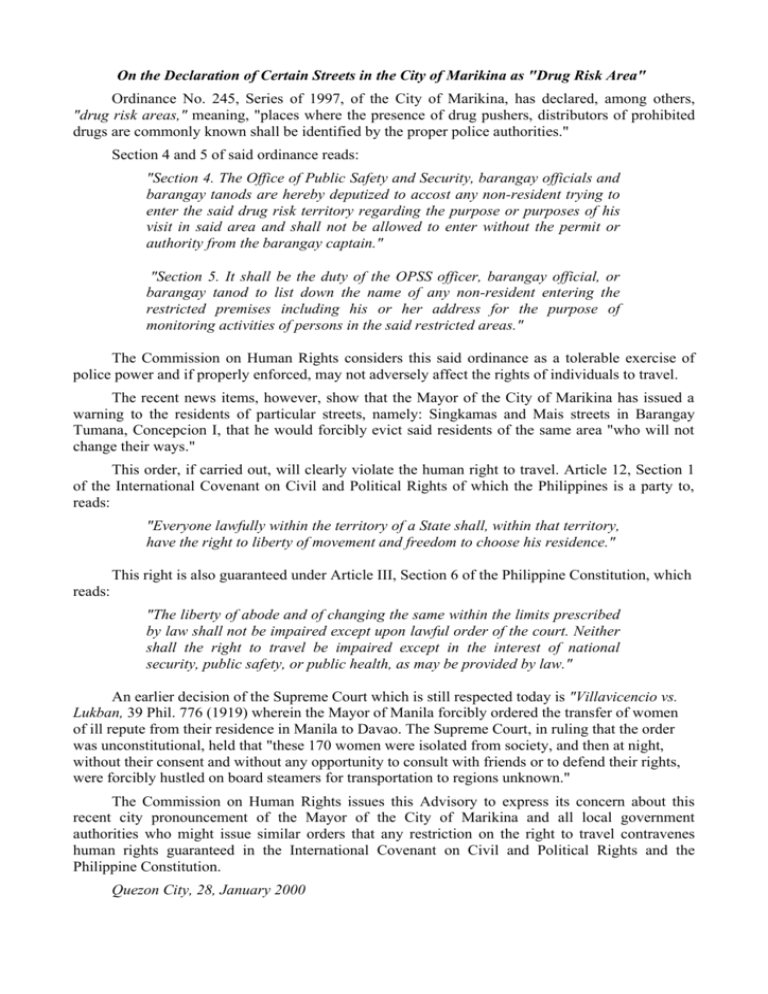
On the Declaration of Certain Streets in the City of Marikina as "Drug Risk Area" Ordinance No. 245, Series of 1997, of the City of Marikina, has declared, among others, "drug risk areas," meaning, "places where the presence of drug pushers, distributors of prohibited drugs are commonly known shall be identified by the proper police authorities." Section 4 and 5 of said ordinance reads: "Section 4. The Office of Public Safety and Security, barangay officials and barangay tanods are hereby deputized to accost any non-resident trying to enter the said drug risk territory regarding the purpose or purposes of his visit in said area and shall not be allowed to enter without the permit or authority from the barangay captain." "Section 5. It shall be the duty of the OPSS officer, barangay official, or barangay tanod to list down the name of any non-resident entering the restricted premises including his or her address for the purpose of monitoring activities of persons in the said restricted areas." The Commission on Human Rights considers this said ordinance as a tolerable exercise of police power and if properly enforced, may not adversely affect the rights of individuals to travel. The recent news items, however, show that the Mayor of the City of Marikina has issued a warning to the residents of particular streets, namely: Singkamas and Mais streets in Barangay Tumana, Concepcion I, that he would forcibly evict said residents of the same area "who will not change their ways." This order, if carried out, will clearly violate the human right to travel. Article 12, Section 1 of the International Covenant on Civil and Political Rights of which the Philippines is a party to, reads: "Everyone lawfully within the territory of a State shall, within that territory, have the right to liberty of movement and freedom to choose his residence." This right is also guaranteed under Article III, Section 6 of the Philippine Constitution, which reads: "The liberty of abode and of changing the same within the limits prescribed by law shall not be impaired except upon lawful order of the court. Neither shall the right to travel be impaired except in the interest of national security, public safety, or public health, as may be provided by law." An earlier decision of the Supreme Court which is still respected today is "Villavicencio vs. Lukban, 39 Phil. 776 (1919) wherein the Mayor of Manila forcibly ordered the transfer of women of ill repute from their residence in Manila to Davao. The Supreme Court, in ruling that the order was unconstitutional, held that "these 170 women were isolated from society, and then at night, without their consent and without any opportunity to consult with friends or to defend their rights, were forcibly hustled on board steamers for transportation to regions unknown." The Commission on Human Rights issues this Advisory to express its concern about this recent city pronouncement of the Mayor of the City of Marikina and all local government authorities who might issue similar orders that any restriction on the right to travel contravenes human rights guaranteed in the International Covenant on Civil and Political Rights and the Philippine Constitution. Quezon City, 28, January 2000
